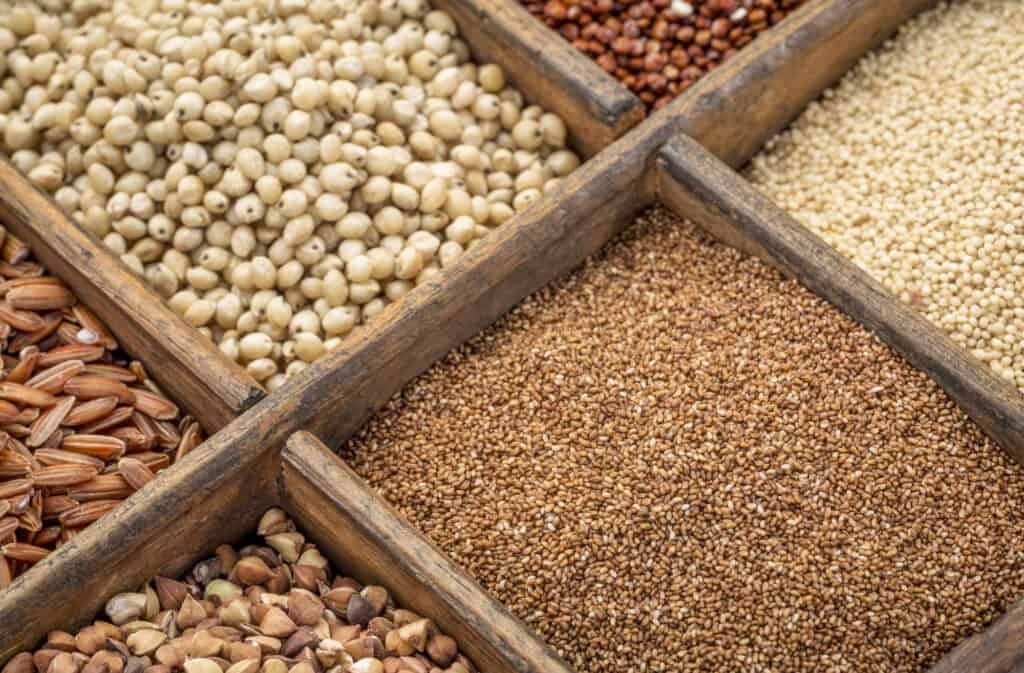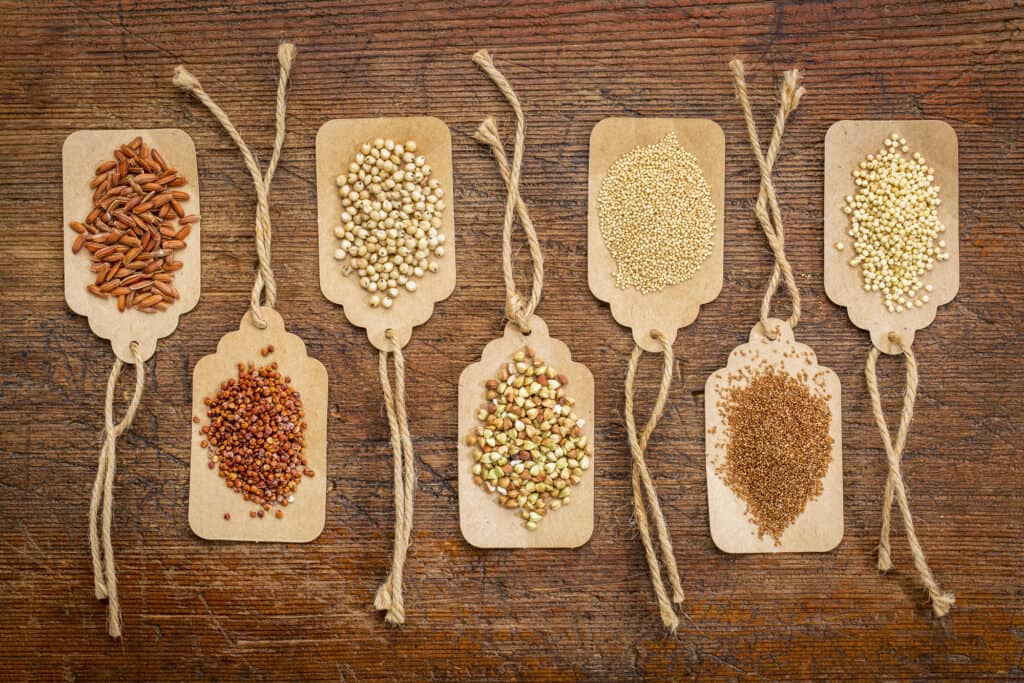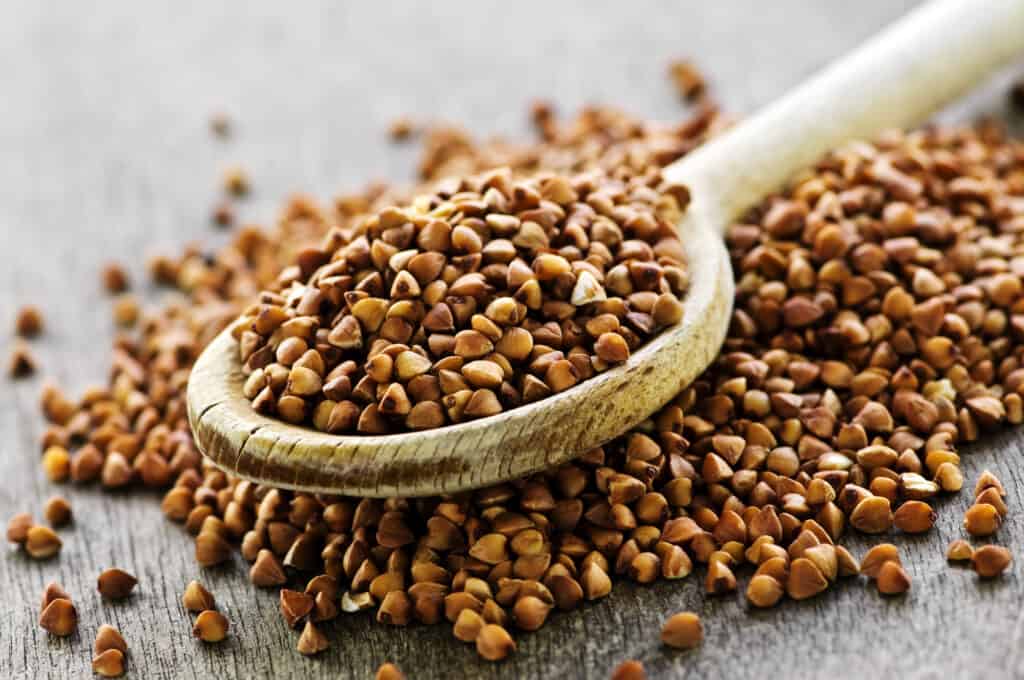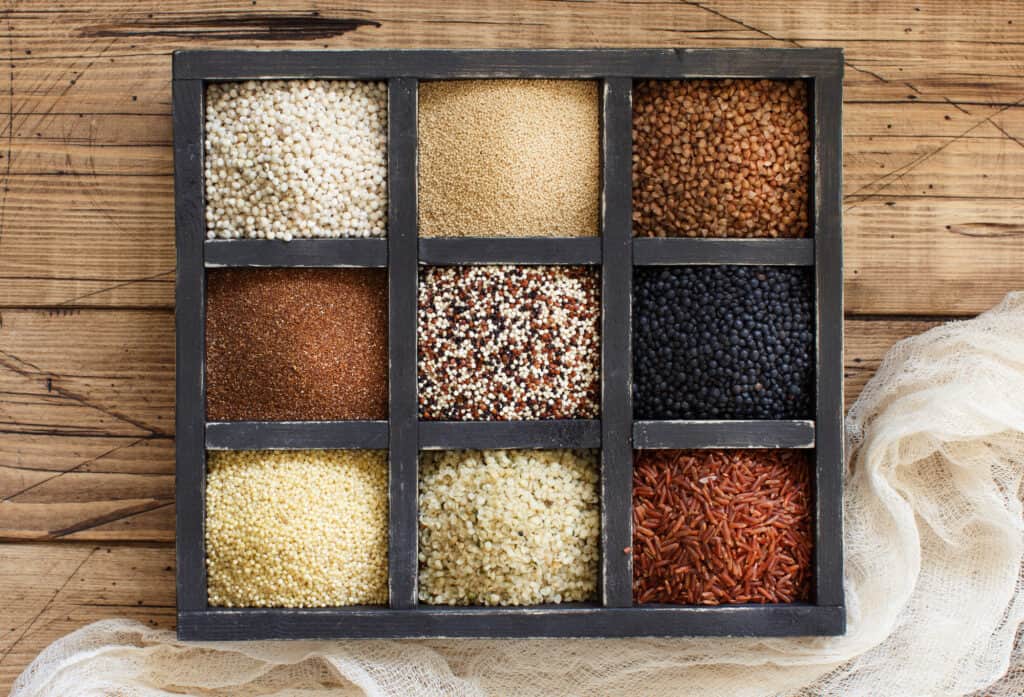Gluten-free grains are an essential part of a balanced diet for those with celiac disease or gluten intolerance. To those giving up gluten, finding creative ways to cook filling meals at home can seem daunting — but it need not be, thanks to the variety of naturally gluten-free grains out on the market.

Some popular gluten-free grains include quinoa, buckwheat and rice, providing a wide variety of flavors and textures. These grains offer a nutritious alternative to wheat, barley and rye, which contain the protein gluten.
Building a gluten-free pantry can seem daunting at first, but with a little knowledge and planning, it becomes a manageable task. From baking gluten-free bread to simply putting together a casserole, these grains enable home cooks to get nutritious meals on the table without scrounging for obscure ingredients.
Including these 10 gluten-free grains in the pantry ensures that the dietary needs of those with gluten sensitivities are met with ease, making gluten-free cooking and meal planning simpler and more enjoyable. Give these grains a try today and discover how pantry items can pave the way to easy gluten-free meals.
A comprehensive guide to gluten-free grains

There is no shortage of shelf-stable, multipurpose grains that can help liven up your cooking. Here are the top 10 gluten-free grains no person should be without:
Quinoa
Quinoa is a popular gluten-free grain with high protein content and essential amino acids. It is a complete protein, making it an excellent choice for vegetarians and those with celiac disease. This versatile grain can be used in salads, soups and cereals.
Filled with appetizers, salads, sides, mains and desserts, Food Drink Life's cookbook will become your favorite!
- Easy and delicious recipes from a variety of top chefs and recipe developers.
- Bright, colorful pictures on every page.
- Printer-friendly recipes that you can download instantly to your device.
- Printable shopping list and a kitchen conversion sheet.
Brown rice
Brown rice, a whole grain rich in nutrients, vitamins and minerals like magnesium and phosphorus, provides a healthier alternative to white rice. Of course, all manner of rice is gluten-free, from simple white rice and even including glutinous sticky rice, which actually contains zero gluten. But brown rice, in particular, is an excellent source of fiber and fits well in a gluten-free diet.
“My absolute favorite gluten-free grain is brown rice because it’s so versatile. I serve it with everything! From eggs to grain bowls to any type of meat or seafood, brown rice is an excellent base for a meal.”
— Gen La Rocca, Two Cloves Kitchen
Buckwheat

Contrary to its name, buckwheat is not related to wheat and is a great gluten-free option. It is used in making gluten-free pancakes, baked goods and noodles.
Amaranth
Amaranth, an ancient gluten-free grain, is high in protein, calcium, iron and fiber. It can be used in baking or as a hot cereal.
Millet
Millet is a gluten-free grain with a slightly nutty flavor that is common in India. It is rich in antioxidants, vitamins and minerals like iron, magnesium and zinc. This grain can be used for making cereals and even beverages.
“Millet is my favorite gluten-free grain. Whether served like rice, mixed into soups, or shaped into patties, millet is a flavorful and versatile grain with a delightfully airy texture.”
— Kristen Wood, MOON and spoon and yum
Sorghum
Sorghum is a gluten-free grain rich in antioxidants and nutrients. It is used in gluten-free flours, cereals and even alternative bread options.
Teff
Teff, a tiny gluten-free grain from Africa, is high in protein, calcium and iron. It can be incorporated into soups, salads and baked goods.
Wild rice
Wild rice is not technically rice, but it is a gluten-free grass with a unique texture and nutty flavor. It is rich in nutrients and antioxidants, making it a healthy addition to anyone’s diet. Try wild rice pilaf to fall in love with this grain.
Corn
Corn is a gluten-free staple that provides many essential nutrients and fiber and can be found in numerous forms, such as polenta and cornmeal. It is also used in making gluten-free cornbreads, arepas and cereals.
Tapioca
Tapioca, derived from the cassava root, is a gluten-free starch used in thickening soups and making gluten-free baked goods. It is an excellent option for those looking for a starchy filler. Try it in a gluten-free flour mix, or make your own pao de queijo.
Wrapping up

In recent years, the demand for gluten-free options has significantly increased. People with celiac disease, gluten sensitivity and those following specific dietary lifestyles have explored various alternatives, falling in love with this diverse field and its many options.
The world has come a long way from unrecognizable gums and porridges. This list discusses only some of the most prominent grains, overlooking some other options like chickpea flour and arrowroot powder. But you need not limit yourself to these 10 gluten-free grains — go ahead and explore your nearest bulk or health food store, grabbing as many different options as you can carry. Whichever one you choose, gluten-free grains provide a great way to maintain a balanced and nutritious diet without compromising on taste.
Ksenia Prints is a food writer, blogger, photographer and recipe developer from Montreal, Canada. She blogs over At the Immigrant’s Table, a food blog showcasing healthy, beautiful international recipes for adventurous home cooks. She loves to highlight ethnic cuisines and immigrant cultures by working with chefs from relevant countries and adapting those recipes to gluten free, vegan, vegetarian, sugar-free and other dietary restrictions.
